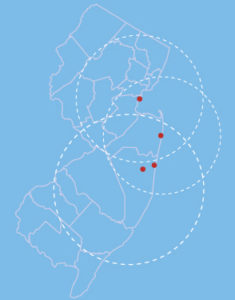How Teachers Can Cope With OCD In The Classroom
Obsessive-compulsive disorder is not synonymous with fastidiousness. In other words, the next time you feel pleased by how organized your house or desk is, try to avoid uttering the phrase “I am so OCD!” People who have OCD experience obsessions and compulsions that feed each other in re-occurring, hard-to-escape loops. These obsessions are always unpleasant thoughts, images or impulses. They are not pleasurable.

Now that we are clear on the definition of OCD let’s be clear on the first and most important fact that those educate children with special needs must never lose sight of. What works for one child does not necessarily work for another. Another emphasis placed on educating children with special needs is coping with and controlling aggressive behavior.
In 2017, a study was published about the efficacy of Cognitive Behavioral Therapy (CBT) versus Applied Behavior Analysis (ABA) in reducing aggression in adolescents. CBT therapies can be used alone or in conjunction with medication to treat a variety of mental health disorders, particularly individuals suffering from anxiety disorders and compulsive addictions. Meanwhile, ABA is much more focused on managing autism spectrum disorders. Its direct behavior modification techniques are often ideal for managing issues with social implications, especially in younger children. Both strategies overlap, but CBT is more structured while ABA includes concepts of reward and punishment that affect motivation to perform certain desirable activities. Overall, the study revealed the significance of both as a form of treatment for reducing aggression but showed no significant difference in effectiveness between the two.
Here are some specific techniques we find helpful for teachers who work with OCD in the classroom:
Accommodation
Special needs teachers are aware of the concept of accommodation. Extend time for tests and papers. Writing can be quite a challenge for children with OCD. They may write and rewrite because of a need to find the perfect way to say something. Consider letting the child use a laptop for taking notes. Allow assignments to be typed instead of handwritten.
Children with OCD and spectrum disorders perform better without distraction. If you can offer a private testing room or quiet place, please do so. Just do your best to make the child feel less overwhelmed. Spare them from having to read out loud. Have them listen to books on tape instead. If breaking homework assignments into chunks reduces the burden, try it.
Communication
Pay attention. You must be aware of triggering events. Fatigue is notorious for exacerbating OCD. When you see the child put his head down, he or she is not being oppositional or disrespectful.
If more disruptive symptoms are coming on, work out an “escape route” with the student. Work out a communication system that will allow him or her to signal you so that he or she can leave the classroom or go to a protected place in the classroom. This is a great way to avoid disruptions, explosions of symptoms and negative response from other children. It also goes the other way. Giving advance notice of things like changes in a schedule is extremely helpful for a child with OCD. Knowing what to expect makes a student less likely to act out.
Peer Support
Teachers can enlist help. Your special needs student may benefit from a buddy. This can be a peer who sits next to the child and coaches him or her, encouraging the student to take notes and stay on task. It even benefits the buddy. Helping someone in need goes a long way toward instilling a sense of confidence and pride.
Seating arrangement is crucial. You control how the student is situated among his or her peers. Keeping the child in front might make him or her less able to hear noise and remain focused on work. However, if the student is self-conscious about observable symptoms such as fidgeting or rocking, you may wish to seat the child toward the back of the room.
Regarding peer support, the assumption remains the mother of all evils. Do not assume that your students will understand the behaviors of a special needs child. Peer understanding programs allow for presentations (with the child participating) that explain what OCD is. Role play can be used ahead of time to anticipate questions the classmates might ask, and how to answer them. By educating the whole class, you can inspire a surprising amount of support from other children.

Alpha School an private special education school in New Jersey
Our Mission at The Alpha School is to help all of our special needs students with the learning, social, language, and behavioral support they deserve. Our highly skilled staff are committed daily to helping each student to becoming the best they can while providing a safe and nurturing educational environment.
We would be more than happy to discuss your child’s specific needs and challenges, so please call us at 732.370.1150, or request a tour of Alpha School of Jackson, NJ located just minutes off of Route 9 and Route 195 in Ocean County.
— Monica DeTuro, Principal-Alpha School, Jackson, NJ
About RKS Associates
At all the RKS Schools we pride ourselves in discovery the hidden treasures of all of our students. Our academic and support services are appropriately customized for a student unique and diverse needs so that they can reach their full potential.
Alpha School is part of special needs network of schools located in Monmouth, Middlesex and Ocean County New Jersey. Since 1980 the RKS Associates schools have been leaders in helping special needs helping students with various disabilities including autism, Down's syndrome, communication, learning, social, behavioral and emotional disabilities. The range of services RKS schools provide is academic instruction and speech, occupational and physical therapies. In addition to Life Skills, Technology, and a full complement of Support Services.




